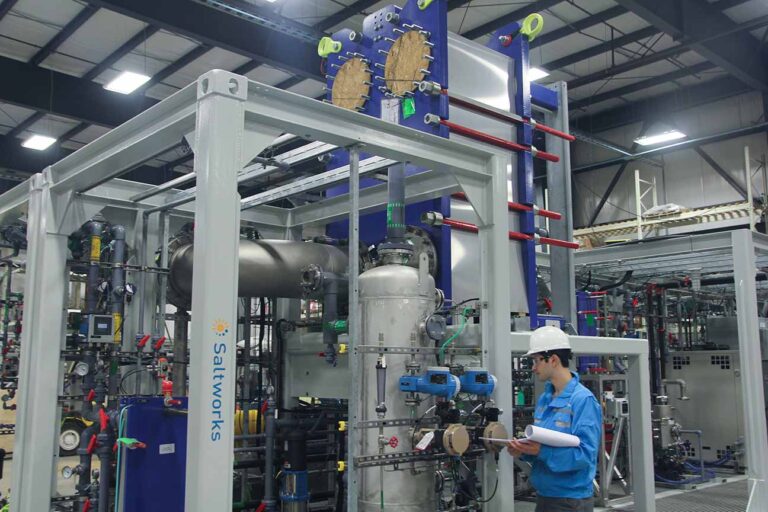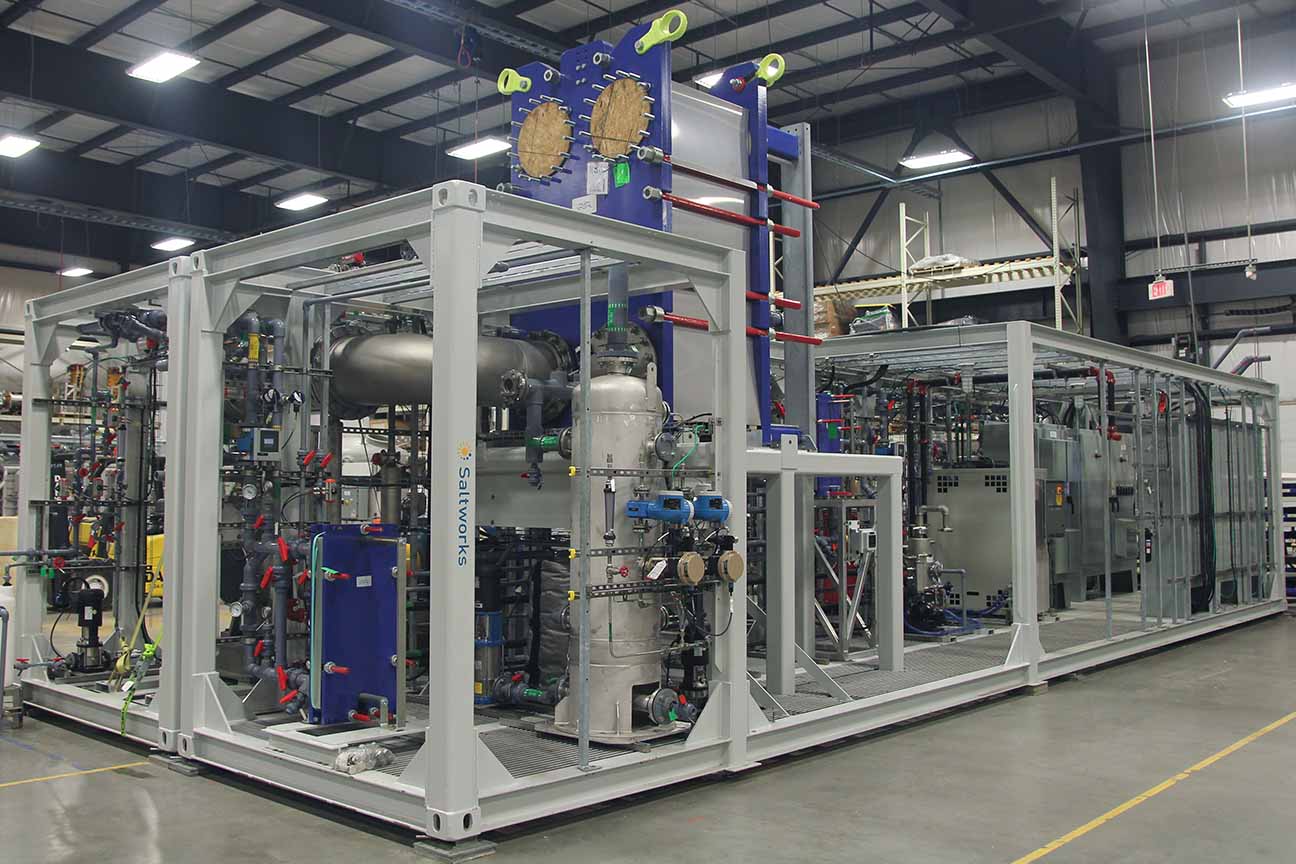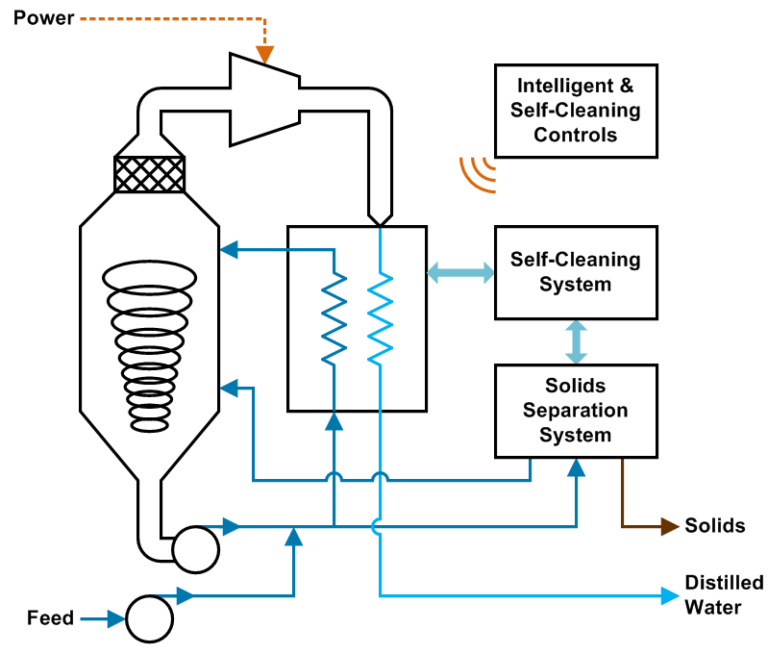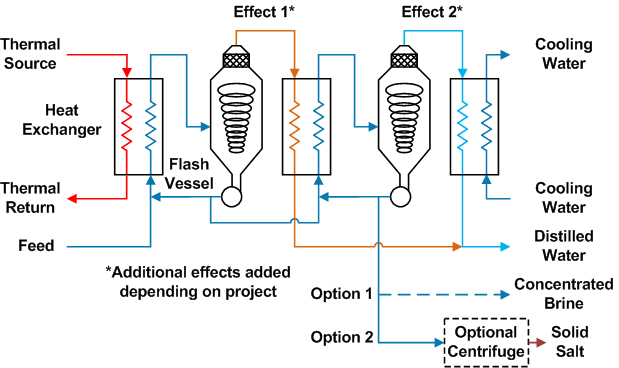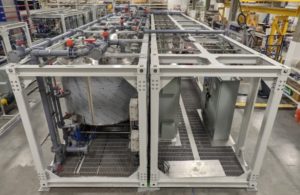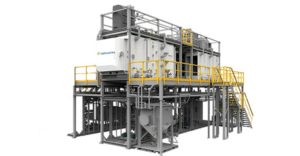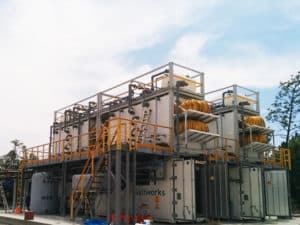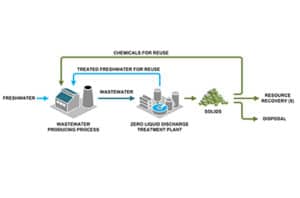SaltMaker MVR & MSF
Mechanical vapour recompression (MVR) and multi-stage flash (MSF) evaporative crystallizers
Modular, next-gen forced circular evaporator-crystallizers for minimal- and true liquid discharge. SaltMaker MVR requires only electrical power to operate, while SaltMaker MSF uses thermal energy, including waste heat sources as low as 80°C.
Modernized Forced Circulation Evaporator-Crystallizers
Saltworks’ SaltMaker MVR and MSF represent the evolution of forced circulation evaporator-crystallizer technology.
Components and engineering have been battle-tested from repeat installations and engineered for corrosive and scaling environments. High brine velocities generate shear in key places, with built-in self-cleaning.
Plants are delivered as factory-built, pre-tested, modular ISO-container-sized blocks – easy to ship and quickly placed on footings, interconnected, and started up at your site.
Plants are delivered as factory-built, pre-tested, modular ISO-container-sized blocks – easy to ship and quickly placed on footings, interconnected, and started up at your site.
Intelligent automation provides leading reliability and ease of operation: self-start-up, capacity control, hibernation, safe shutdown, and built-in heat exchanger monitoring and cleaning.
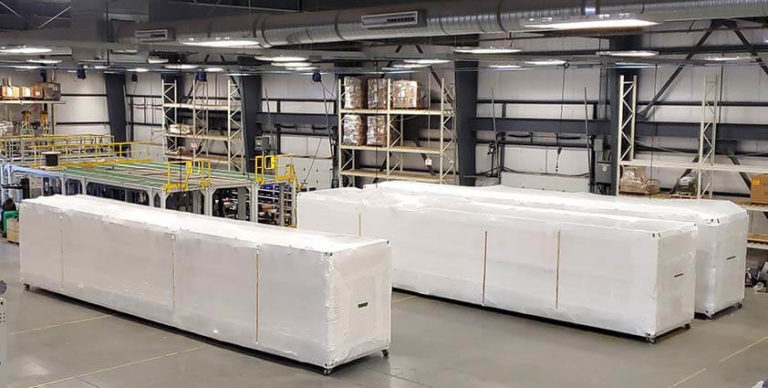
SaltMaker MVR
Like all mechanical vapour recompression plants, SaltMaker MVR uses a compressor to evaporate vapour from brine and condense distilled water, recycling the heat of condensation.
The vapour compressor provides a temperature rise across the heat exchanger. SaltMaker MVR only requires power to operate (no need for a gas line connection or heat) and is compact.
In addition to treating wastewater, SaltMaker MVR is also an industry-leading lithium brine concentrator and lithium hydroxide crystallizer.
SaltMaker MSF
Multi-stage flash evaporators and crystallizers use thermal energy to evaporate vapour from brine, lowering electrical energy consumption and removing the need for a vapour compressor.
Across multiple effects (stages) the heat of condensation is recycled to evaporate brine. Practically, a maximum of four forced circulation effects is common, while waste heat sources at 80°C may mean employing fewer effects.
Take the Next Step
Evaporation, crystallization, slurry management, and corrosion control require deep expertise.
Saltworks’ experienced chemists and engineers can ensure your plant is designed and built right for your application. All SaltMakers are delivered as fully automated plants, from inlet to discharged water and solids, and include an integrated decanter centrifuge and solid slurry management system.
Our SaltMaker MVR is also a core component in our complete packaged end-to-end ZLD systems and lithium refining systems. Contact us to get started.
